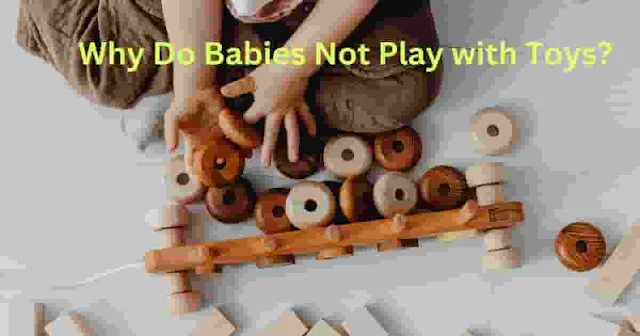Why Do Babies Not Play with Toys?
Many parents wonder, "Why doesn't my baby play with toys? Is there something wrong with them?" The truth is, it's all about a child's developmental journey and personal preferences.
How Development Affects a Baby's Interest in Toys
Newborns lack the motor skills to grasp toys. As they grow, their ability to hold and interact with toys improves. Older children engage in more imaginative play, using their creativity in new ways.
Babies Have Different Toy Preferences
Every baby is unique. Some are drawn to bright, noisy toys, while others prefer puzzles or soft toys. Sensory experiences also play a role in their toy choices.
Short Attention Span
Babies are easily distracted by their surroundings. Their curiosity often shifts quickly from one object to another, making them lose interest in toys faster.
Toys and Social Development
Playing with toys helps children develop social and emotional skills. It teaches them communication, body language, and emotional regulation.
Cognitive Benefits of Playing with Toys
Toys play a crucial role in brain development. Activities like stacking blocks improve logical thinking, problem-solving, and memory. Sound-based toys enhance cognitive skills by creating associations between sounds and actions.
How to Encourage Babies to Play with Toys
- Choose age-appropriate toys: Ensure the toys match your baby’s developmental stage.
- Demonstrate play: Show them how to use a toy.
- Engage in interactive play: Play together to keep them interested.
- Observe their preferences: Follow what they enjoy the most.
- Rotate toys: Introducing new toys regularly maintains interest.
What If a Baby Doesn’t Reach for Toys?
Every child develops at their own pace. As long as your baby is reaching other milestones and is otherwise healthy, there’s no need to worry.
Autism and Toy Play
Children with autism may interact with toys differently. They might focus on textures, movements, or sounds rather than imaginative play. Each autistic child has unique strengths and challenges.
Is It Normal for a Baby Not to Play?
Yes, every child has a different level of interest in play. Some are highly active, while others prefer to observe and explore their surroundings.
Object Permanence in Babies
Young babies don’t understand that objects exist when out of sight. This skill, called object permanence, typically develops around 6–8 months.
Conclusion
Babies play with toys differently than older children because they are still exploring their environment and developing cognitive and motor skills. As they grow, their play behavior evolves, making it essential for parents to understand and support their development.


0 Comments:
Post a Comment